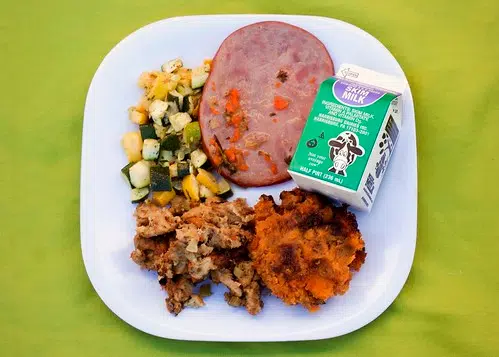A sweeping bill calling for a series of nutrition reforms is on the governor’s desk.
Senate Bill 14, authored by Sen. Patrick McMath (R-Covington), unanimously passed both houses of legislature.
Major components include banning certain artificial colors and additives in meals served in schools, and forcing food companies to put QR codes on packaging if their products contain certain artificial ingredients.
McMath says they’re part of the nationwide Make America Healthy Again movement.
“(The legislature is) giving President Trump and Secretary Kennedy the leverage that they need to bring the food manufacturers to the table to get them to change their ingredients,” says McMath.
Restaurants and other food businesses which use seed oils in their cooking will have to clearly indicate such, and certain medical professionals will be required to take a one-hour course on nutrition and metabolic health every two years.
“Given how important it is for the things that we put in our bodies, how that plays out with our metabolic health and our overall health and how it relates to chronic illness (and) chronic disease, you would think that doctors would have a solid base of education on nutrition,” McMath says. “And they simply don’t.”
One thing that didn’t make it onto the final bill was banning the use of SNAP benefits to purchase soft drinks.
McMath says that’s because Governor Landry made the issue moot.
“After the bill got out of health and welfare committee, the following day, the governor issued an executive order prohibiting the purchase of soda and candy for SNAP recipients,” says McMath.
Some components of SB14 won’t go into effect for several years — the QR codes take effect Jan 1, 2028; and the school meal ingredient requirements go into effect at the start of the 2028-29 school year.
“We kicked in some pretty long runways here to let the food manufacturers, the schools, the markets adjust to these big changes that are taking place across the country,” McMath reasons.








Comments